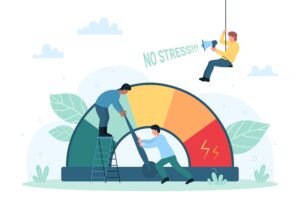Welcome to Hope-Full Coaching
Holistic Stress Management
At Hope-Full Coaching, our services help reduce high stress levels and restore well-being. Your journey is unique and personal; our customized packages will empower you to effectively manage stressful situations. Contact us
Are you ready to embark on a transformative journey toward a healthier, more vibrant life?
STRESS RELIEF STARTS HERE: RECLAIM YOUR WELLNESS

Is CHRONIC STRESS Affecting Your Health & Well-Being?
Restore Your Well-Being Today
At Hope-Full Coaching, we recognize the profound influence unrelenting stress has on crucial aspects of your life. That’s why we collaborate with individuals struggling with chronic stress, assisting them in their search for holistic approaches to attain well-being, vitality, and sustainable change.
Here is Why We Stand Out and it’s Absolutely Essential in Today’s Fast-Paced World:
Holistic Approach • Personalized Solutions • Cutting-Edge Techniques • Long-Lasting Results • Brain-Body Connection • A Needed Service
Don’t let stress rob you of your health and happiness any longer. Take the next step to managing your stress levels by exploring our solutions today.
Inspire • Empower • Transform Lives
Meet The Hope Coach
“What oxygen is to the lungs, such is hope to the meaning of life.” Emil Brunner
Coach Deborah has, on occasion, been affectionately dubbed the Hope Coach because she consistently plants seeds of hope and encouragement into individuals while on their journey. She speaks from experience when she says optimal health and a vibrant life are possible and available to everyone, including individuals experiencing chronic stress and burnout.
Her experience is what fuels the passion to help individuals CONQUER BURNOUT!

“Deborah and I worked together for a period of three months. Each week, we worked towards developing my goals and creating solid plans to help me continuously move forward with my business. During that time, in addition to business goals, she helped me develop realistic time tables and understand the importance of work-life balance to ensure that my family and my health were not being neglected. What I learned most from her holistic coaching approach was that we must take time to reflect on what’s working and what’s not and to focus on health and family. If we fail to focus on our health, nothing else will matter as we won’t have the ability to continue to do the things that are most important to us. Looking back, our trusting relationship and time together really changed my life forever. I am extremely grateful for the time and energy that she put into the numerous hours she spent coaching me! Deborah is truly a wonderful person and an extremely valuable coach!” C.B., Business Owner
Levels of Stress
Acute – Chronic – Burnout
In the realm of stress, let’s imagine a metaphorical traffic light to depict three stress levels.
Stress Management Services
“Stress acts as an accelerator: it will push you either forward or backward,
but you choose which direction.” Chelsea Erieau
Unique Approach
Our services combine holistic practices with neuroscience insights which provide a comprehensive approach to stress management.
Our Coaching + Training Programs are comprised of customized STRESS Reduction Packages which include a diverse range of tools, strategies, and resources for effective stress management. Each package is customized to meet the client’s unique requirements. The power-packed STRESS Reduction Packages improve physical and mental health, enhance cognitive function, build resilience, and reduce stress levels, for individuals.
Hope-Full Coaching is excited to announce that online group coaching and online courses will soon be available, allowing us to help even more people effectively manage their stress levels.
What is Coaching?
People come to coaching for many reasons; however, the bottom line is CHANGE. Coaching is all about helping you accomplish all you desire, become all you desire and find the fulfillment you desire.

What is Consulting?
Traditional coaching believes the client is whole, resourceful and creative. Whereas in consulting, the consultant works with the client offering outside perspective, utilizing insight and expertise as well as input in creating plans.
Frequently Asked Questions About Stress
What is stress?
Stress is a natural response of the body to any challenge or threat. It triggers a series of physiological changes in the body, preparing it to respond to the perceived danger.
Many things can trigger this response, including change. Changes can be positive or negative, as well as real or perceived. They may be recurring, short- term, or long-term.
What is the Physical Response to Stress?
Stress is a natural physiological response of the body to any challenge or threat. It triggers the release of stress hormones, such as adrenaline and cortisol, which help the body prepare to respond to the perceived danger.
This response is commonly known as the fight or flight response. Stress can be triggered by a range of factors, including work-related pressures, financial problems, relationship difficulties, and health concerns.
Is it possible to eliminate stress?
Eliminating stress from life is not only impossible, it is unrealistic.
For people prone to the negative effects of stress, stress management is important for physical and mental well-being.

